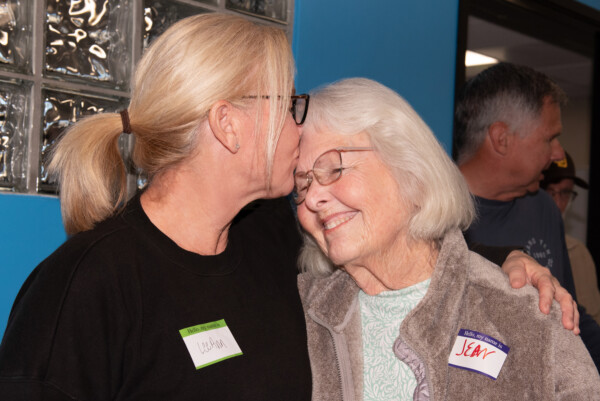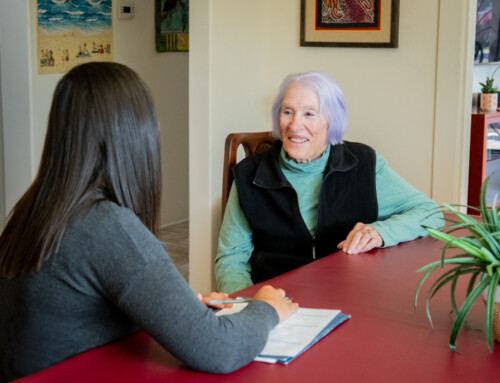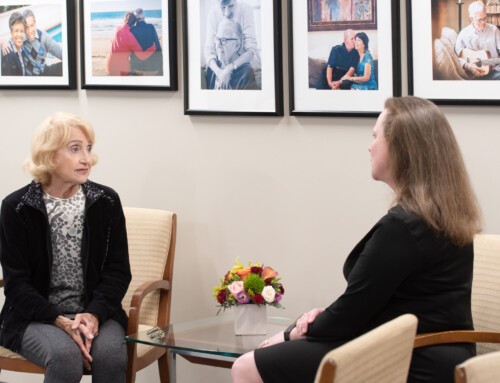
Clinical Care Coach Corner: Written by Kristen Romea, LCSW
The experience of caring for an individual with dementia is often a challenging one. It is emotionally, mentally, and physically draining. It is not uncommon that a family care partner might feel that they have nothing left to give by the end of the day. Despite this, we often hear from care partners that they feel a constant sense of guilt, shame, and self-doubt. Many of them hold themselves to an incredibly high standard and rarely pause to consider how resilient, strong, and compassionate they are. Caring for someone with a cognitive impairment requires a great deal of kindness and patience, but care partners rarely treat themselves with that same level of kindness and patience. In my work with family care partners I often find myself thinking “I wish this person could see themselves through my eyes.” Perhaps then they would see how amazing they are as a care partner and as a person. Self-compassion is a skill that can be practiced and we can all learn how to better care for ourselves over time.
One important task in the practice of self-compassion is practicing “acceptance.” If you notice that you are struggling, acknowledge that caregiving is inherently difficult. It is normal to struggle and even the strongest, most resilient people struggle when tasked with caring for another person. You are allowed to feel overwhelmed, anxious, sad, or tired. You are also allowed to make mistakes. This does not make you a bad care partner.
It can be incredibly difficult to give ourselves grace in moments of self-doubt or shame. Some care partners find it helpful to consider how they might view the situation from another perspective. For example, what would you say to a friend who was in your situation? We are often kinder to others than we are ourselves. You would probably not berate a friend who made a simple mistake or lost their patience, so what would you do? What would you say? This is a wonderful way to practice a kinder inner monologue and reframe the way we think about ourselves during difficult moments.

Some care partners find that they can interrupt self-deprecating thoughts through the use of an affirmation. Affirmations are simple phrases that we can practice using until they come to us naturally. Some of the phrases I have heard from care partners are: “You are doing the best you can,” “I am a caring and compassionate care partner,” and “I am learning and growing every day.”
An important part of self-compassion is “self-care.” Finding the time, energy, and privacy to practice self-care becomes more difficult over time as the needs of the individual you are caring for grow. This may mean that you have to reach out to friends, family members, or community organizations (such as ours) to arrange for respite or a well-deserved break. It may also mean that you are flexible and creative in the ways in which you practice self-care. Perhaps you do not have time to take a luxurious bath but you do have time to step outside and listen to your favorite song for a few minutes. The important thing to remember is that you have needs as well and you deserve to spend some of your time and energy on those needs.
Check out our free support groups, education, social activities, & more. You may also call our office at 858.492.4400 to speak directly to one of our clinical care coaches (Spanish speakers available as well).
Our “Clinical Care Coach Corner” series is where our dementia experts weigh in on topics they feel are necessary to discuss and provide insight that can help people affected by dementia.




